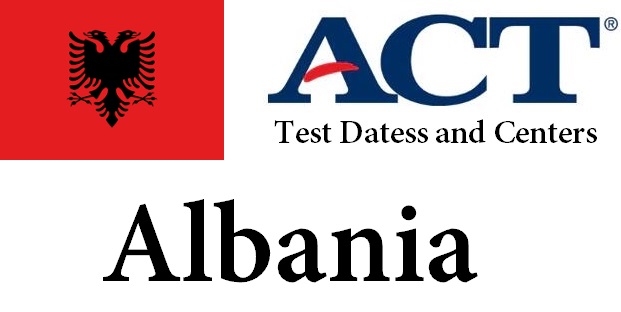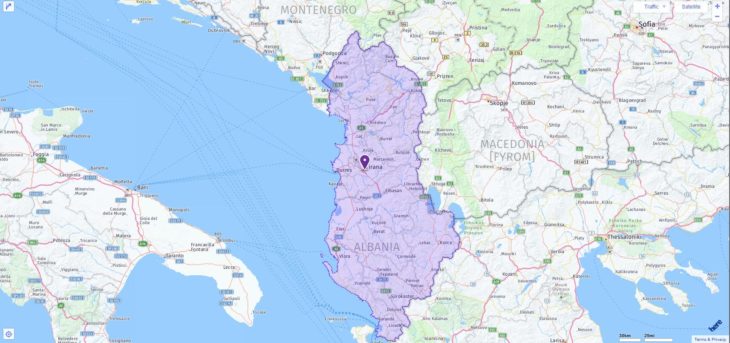Your search found 2 matches. The following is the full list of ACT testing locations in Albania among which you can pick one to take the exam. Please know that on the test day, test takers can use any 4-function, scientific, or graphing calculator. On the table below, you can also find all test dates through 2019.

2019-2020 ACT Test Dates in Albania
| Test Date | Registration Deadline |
| February 9, 2019 | January 11, 2019 |
| April 13, 2019 | March 8, 2019 |
| June 8, 2019 | May 3, 2019 |
| July 13, 2019 | June 14, 2019 |
| September 14, 2019 | August 16, 2019 |
| October 26, 2019 | September 20, 2019 |
| December 14, 2019 | November 8, 2019 |
| February 8, 2020 | January 10, 2020 |
| April 4, 2020 | February 28, 2020 |
| June 13, 2020 | May 8, 2020 |
| July 18, 2020 | June 19, 2020 |
ACT Test Centers in Albania
| City | Center Name | Center Code |
| Tirana | Albanian College Tirana | 874840 |
| Tirana | Mehmet Akif College | 872630 |
More about Albania
Albanian literature
Albanian literature. A rich folk literature that has been handed down over centuries (heroic epics, historical songs, fairy tales, etc.) has remained alive to this day. It was only in the modern era that art literature emerged that was written in several centers that were divided by dialect and denomination and that were in the field of tension between East and West. Thus, in the 16th and 17th centuries, religious literature was created in Catholic northern Albania in the Gian dialect, and in the Tuscan dialect among the Orthodox Albanians in southern Italy and Sicily. The »old authors« include G. Buzuku (16th century), Lekë Matrënga (* 1567, † 1619), Pjetër Budi (* 1566, † 1622) and Pjetër Bogdani (* around 1630, † 1689). A strongly Persian-Turkish influenced poetry developed in the 18th and 19th centuries in Islamic central Albania.
Albanian literature only emerged more clearly in the 19th century. The Romantic-inspired poet and publicist Girolamo de Rada (* 1814, † 1903) and the poets Giuseppe Serembe (* 1844, † 1901) and Giuseppe Schirò senior (* 1865, † 1927) worked among the Italo-Albanians. After the League of Prizren (1878), literary-cultural associations were founded by the Albanians of the diaspora fighting for Albania’s independence, who came together in the “Rilindja” (“national rebirth”) movement. Literary leaders were among others. the brothers N. Frashëri and S. Frashëri, A. Z. Çajupi, Asdreni (* 1872, † 1947) and Faik Bey Konitza (* 1875, † 1942). Kostandin Kristoforidhi (* 1826, † 1895) provided translations of the Bible into Gegisch and Tuskish. Around 1900 literary life was also stirring in Albania itself, with the town of Shkodër initially determining (first Albanian printing house in 1870) and the towns of Korçë and Elbasan being added later. The outstanding poet personality was P. G. Fishta, who created a work of high standing with his great epic »Lahuta e Malcís« (1905–30; German »Die Lute des Hochlandes«). Beside him worked between the two world wars F. Noli, Lasgush Poradeci (* 1899, † 1987), E. Koliqi and Migjeni(* 1911, † 1938).
With the communist seizure of power after the Second World War, there was a blatant break with the past. Numerous writers and intellectuals were arrested or executed; others fled abroad. In the 1950s, a pseudo-literature of socialist realism developed, but it was not until the 1980s that novels of literary rank emerged. The Albanian literature of the former Yugoslavia, which v. a. originated in the 1970s / 80s in Kosovo and Macedonia. – I. Kadare remains a leader in contemporary prosewho went into exile in Paris in 1990 and achieved international recognition. However, the predominant genre of Albanian literature is still poetry. Short prose and novels have enjoyed increasing popularity since the political change in 1990/91.

